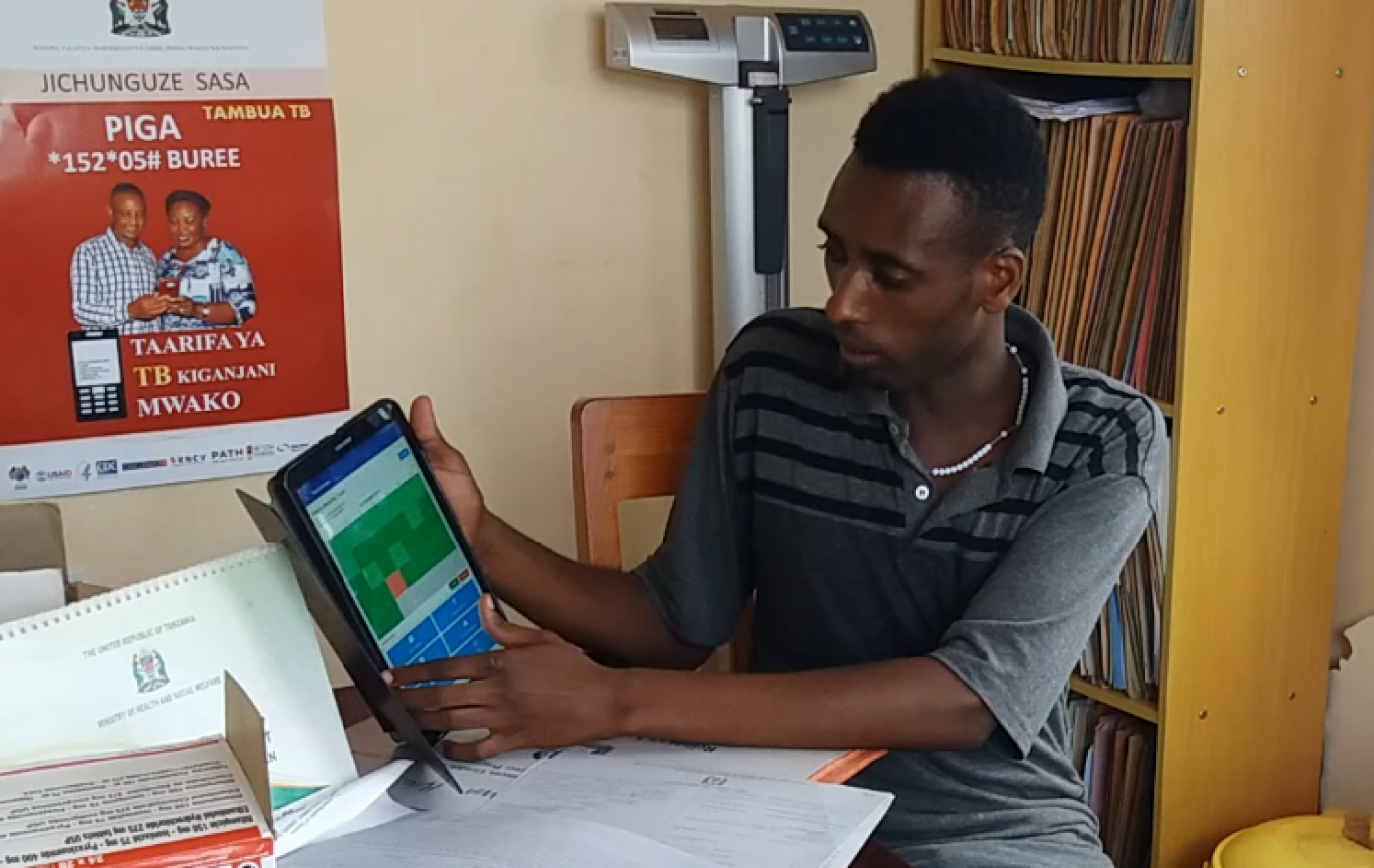In Tanzania, the population of workers involved in the mining sector is a high-risk group for TB. This is especially true for individuals involved in small-scale (artisanal/informal) mining communities where persons are living in poorly ventilated, crowded mining camps, work underground in small, dusty spaces, and do not have access to the company-employed TB doctors typical in the large-scale mining industry. These small-scale miners are particularly mobile, as gold rushes are common, and miners move often between different mining camps. Furthermore, these mobile mining populations often lack the built-in community support associated with rooted family support systems. The TB REACH project in Tanzania introduces 99DOTS as a Digital Adherence Technology (DAT) in the gold mining Geita region in northwestern Tanzania to enable treatment and adherence support for miners with Drug Resistant Tuberculosis (DS-TB).
Since 2018, KNCV has rolled-out DAT demonstration projects in three countries – Philippines, Tanzania and Ukraine-, funded by the Stop TB Partnership, TB REACH. The goal of these demonstration project is to assess the feasibility, acceptability by patients and health care providers, and the accuracy of digital adherence technologies. In addition, the project will assess the overall impact of DATs on treatment outcomes and general adherence behavior. As part of the project, KNCV will determine the necessary adaptations needed to make DATs suitable for a variety of contexts, including how to incorporate patient-centered mechanisms, and steps to scale-up and sustain these innovative approaches.
Project highlights
- Over 790 patients registered on the DAT platform
- Surveys from over 170 patients and health care workers on the acceptability and feasibility of DATs in Tanzania
- Patients empowered with insights into their treatment adherence to better support themselves
- Custom adaptations to the sleeves for usability in Tanzania that can be replicated across other products.
One of the main benefits of DATS is the availability of electronically compiled dosing histories which can be used to efficiently guide individualized patient centered care. To support the current DOT standard of care in Tanzania, which is (>90% of patients) self-administrated home-based treatment, the adherence platform is customized to send SMS reminders to patients who have not taken their daily medication by 6pm. Where patients have missed two or three consecutive daily doses of medication, the DAT prioritizes these patients and sends an SMS reminder to the health care provider to call or visit these patients at home, to counsel and motivate patients to take their medication.
This technology driven intervention has empowered patients and supported health care workers to improve the current DS-TB regimen performance by closing gaps in treatment (half of the cascade of care).
DATs can play an important role to reinforce patient medication adherence and facilitate monitoring and triage of patients by health systems, this can include customized motivational and educational messages based on patient dosing histories for patients who need more support.

